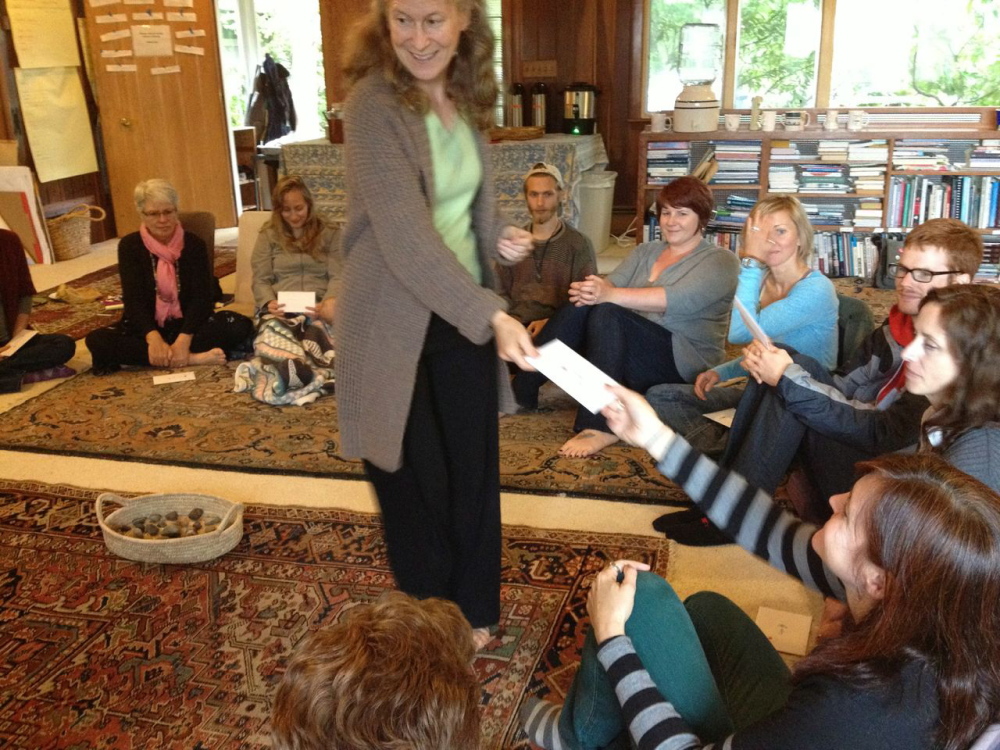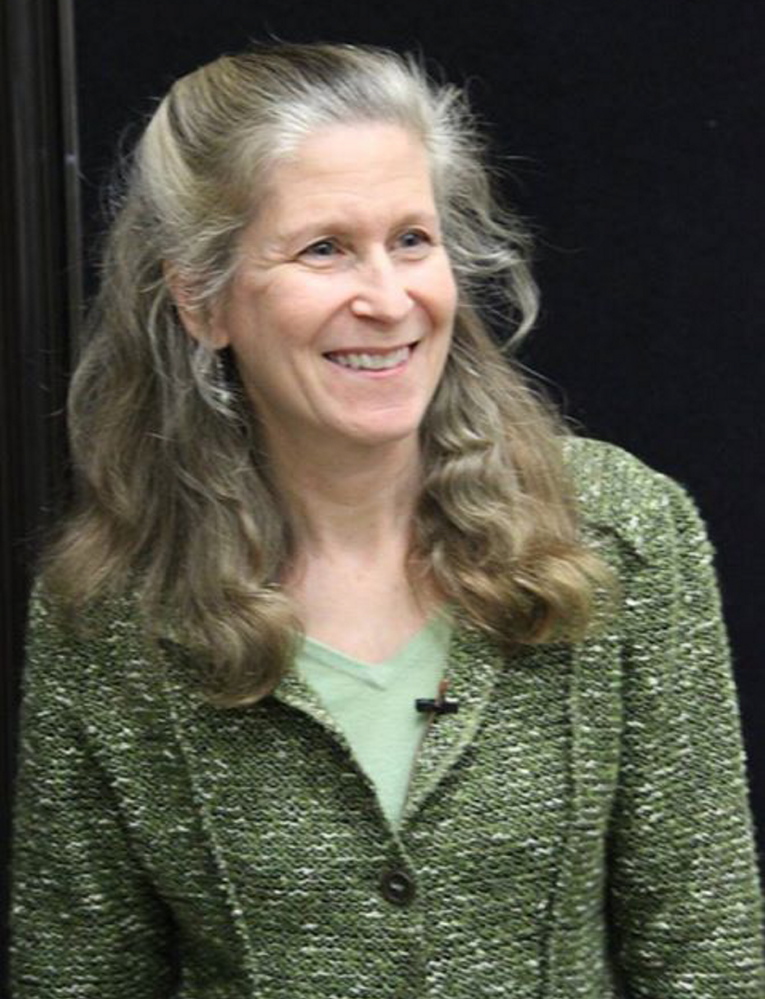School is back in session, but what are students learning? Sure, they’re studying math, science and language arts, but who are schools preparing kids to be once they graduate? Asked another way: Are students being taught to perpetuate a world rife with human slavery, pollution and animal abuse? Or are they learning to identify and solve these and the panoply of other challenges facing us today?
If Mainer and longtime vegetarian Zoe Weil has her way, education will one day be transformed so all students become trained problem-solvers ready to revolutionize the world through work that does the most good and the least harm. Weil, founder of the Surry-based Institute for Humane Education, calls these super-students “solutionaries.”
In a talk Weil delivered at the 2010 TEDx Dirigo event in Portland, which has since been viewed more than 95,000 times on YouTube, she argued our goals for education are too narrow and produce graduates willing to take jobs that contribute to the world’s problems.
“We need a bigger vision for the purpose of school,” Weil said in the talk, titled “The World Becomes What You Teach.” “And I believe that it should be this: that we provide every student with the knowledge, tools and motivation to be conscientious choice-makers and engaged change-makers for a restored and healthy and humane world for all.”
To that end, her institute offers graduate programs for educators. But her latest project is the formation of a model kindergarten-through-12th-grade school in New York City. The institute has assembled a steering committee and hired a headmaster to launch the Solutionary School as an all-vegetarian, independent day school in September 2016. Work is underway to raise money, find a facility, hire a staff and develop a curriculum. Weil hopes the New York City school will “be a prototype and proving ground” for this style of education.
“Our world at every level – from the family on up to the planet – is really struggling and suffering,” said Bill Gladstone, an educator who has been tapped to head the new school. “It’s the future generations that are going to have to wrestle with the problems we’re handing down to them. The only way they’re going to do that effectively is if they’re knowledgeable and skilled.”
At the Solutionary School, every aspect of the school – from the building to the physical education program – will be designed to reflect the holistic principles of humane education. The school itself will incorporate green building techniques and will also serve as a community center. Students will cultivate a garden (likely on the rooftop or the walls), discuss the connection between diet and health in gym class and learn to cook plant-based dishes in the vegan cafeteria.
“Everything in this school will be aligned with doing the most good and the least harm,” Weil said. “The cafeteria will reflect those values. We want to have the school model the healthiest, the most sustainable and the most humane food choices.”
Throughout the day, the cafeteria will lend itself to many lessons, said Gladstone, who spends summers in Belgrade Lakes. “A vegan cafeteria provides the opportunity to think deeply about a lot of issues,” Gladstone said, “such as where food comes from, how food is grown, the people involved in food production and the health benefits of what we eat.”
The school will join two public schools in New York City that have recently converted their cafeterias to all vegetarian food.
Neither students nor staff at the Solutionary School will need to be vegetarian, and everyone will be free to bring their own meat-based lunch. For Weil, the cafeteria’s menu is not about dictating how students and staff should eat.
“I do not believe that there is one diet in one location that does the most good and the least harm in all places and all aspects,” said Weil, whose own diet has evolved over the years from pescatarian to vegetarian to vegan to plant-based-local-vegan as her knowledge of food-related issues has broadened. “I really encourage people to explore what their values are and make their choices accordingly.”
Avery Yale Kamila is a freelance food writer who lives in Portland. She can be contacted at:
avery.kamila@gmail.com
Twitter: AveryYaleKamila
Send questions/comments to the editors.



